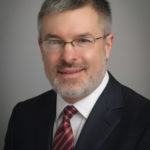In Texas, an Innovative Spirit Infuses Mental Healthcare
Editor’s note: The American Communities Project explored health and socioeconomic trends across our 15 community types in our first report this fall, supported by the Robert Wood Johnson Foundation. We also took deep dives into five communities of different types, including Dallas, Texas, a Big City. There, we met with Dr. Andy Keller, president/CEO of the Meadows Mental Health Policy Institute. In the post below, Keller describes mental healthcare advances in Texas.
Texas is, and always has been, a frontier — a place willing to approach challenges in new ways and a people who never take “it can’t be done” for an answer. That’s why it’s the home state of innovations big and small, from the Hughes Two-Cone Drill Bit to Dell Computers. Just last week, Apple announced plans to build a new $1 billion campus in the state capital of Austin.
Other innovations are happening in the health sphere. One is the Meadows Mental Health Policy Institute (MMHPI), founded five years ago with the vision of making Texas a national leader in treating people with mental health needs. As the institute’s president and CEO, I lead a team working to help Texas be among the first states to take proven care models to scale and stay ahead of the pack in developing innovative and revolutionary approaches to care.
Not only will this be good for Texas but it also should help spur innovation and change more broadly, as the Lone Star State is in many ways a microcosm of the nation as a whole. Texas has a diverse, growing population, living in some of America’s largest urban centers and most remote, rural areas. Our diversity and inclination to think big make us an ideal laboratory for trying a variety of ways to provide mental healthcare to people who need it.
The End of Modesty
At MMHPI, we focus on mental healthcare delivery with the singular notion to treat everyone who needs care, when and where they need it. This shouldn’t be a surprise, but it often is. While our nation seeks to “end cancer” and “eliminate diabetes,” aspirations are much more modest for mental health. We are done with modesty at MMHPI, and we have distilled our hopes into four initial goals:
- Eliminate the need to use jails for routine mental health care delivery.
- Eliminate expulsions due to unmet mental health needs in schools.
- Detect, treat, and remit 100% of depression cases.
- Detect, treat, and remit 100% of first episode psychosis.
Those goals may seem lofty, but, why shouldn’t we think big when it comes to mental health treatment? Do we restrain our expectations when it comes to treating types of cancer that still lead to death for most people? Did our advances in treating heart disease stem from a tepid hope?
And we have nothing to be timid about in mental health. We know that effective treatments are in place for most mental illnesses, and usually, when people get the right kind of help, their outcomes are dramatically better.
Mental Healthcare = Healthcare
The main obstacle is simple: The larger healthcare system has maintained a harmful wall between “mental healthcare” and “healthcare” based on a flawed premise that mental health is not physical. Even when health purchasers take steps to ensure parity in funding and treatment of both “sides” of this system, it misses the larger point: Mental healthcare is simply healthcare, and vice-versa.
From an overreliance on specialists to treat routine illnesses like mild depression and anxiety that could be effectively treated by their general practitioner, to a failure to widely deploy reliable screening just because it relies on verbal reporting rather than bodily fluids, to the way insurance companies typically force “integrated” providers to contract with two separate payers (one for “mental” and one for “physical” health), our health system seems fixated on treating mental health differently than physical ailments.
In addition to working better, organizing care delivery around primary practices is the only way to address our current workforce gaps. Nearly every community in America has “too few” psychiatrists, social workers, and other mental health specialists to meet every need, and this is even more true in Texas, with our vast rural regions and fast-growing urban population. While we do need more practitioners, especially for children, even more we need to link our specialists to primary care settings to help them intervene early and treat routine cases before they worsen. We don’t send everyone with a broken bone to an orthopedic specialist — if we did, we would have a workforce crisis for broken bones, too.
Aligning Providers Is Bringing Change
The good news: Systems can be changed. In fact, in Texas, change is happening more quickly than we expected. A big part of the success in expanding funding for and access to needed care over the past few years has been aligning providers of all types, employers, policymakers, and the state’s high-impact philanthropic community. This alignment has allowed us to:
- work in dozens of communities from the Panhandle to the Rio Grande Valley to Deep East Texas to our many urban centers to better understand the needs and strengths of each;
- launch a public awareness campaign, Okay to Say, reaching millions;
- help local health systems target solutions to specific communities, including expanding telehealth for trauma in communities affected by Hurricane Harvey and helping Dallas reduce use of the jail by shifting front-line emergency response to paramedics rather than police;
- use our experiences in these communities to see what works and what doesn’t;
- figure out together how to replicate the good and improve the less good; and
- spread proven practices to other towns and regions for the benefit of the entire state.
Philanthropists’ Pivotal Role
Philanthropists, in particular, have made a big difference. Many are the same bold visionaries who helped spur innovations and breakthroughs in our leading industries — energy, technology, transportation, retail, healthcare, and dozens more — and they are now bringing that approach to helping people with mental health needs.
At MMHPI we are able use our independent perspective to bridge the gaps between elected officials, system leaders, and philanthropists. That frees us to pursue issues in new ways, build relationships with people across the state, and establish private-public partnerships that work as well in practice every bit as well as they do among policy makers. For example, we are working with our 12 medical schools to create a consortium to advance psychiatric care, training, and research across public and private institutions with a goal of making new advances available more quickly in publicly and privately funded health systems.
And we have taken the work of translating good policy into effective practice to a new level through our first regional program, The Hackett Center for Mental Health, established by Houston philanthropists Maureen and Jim Hackett to bring world leading care to the people and communities of the Texas Gulf Coast. The impetus for its establishment in January 2018 was the expected increase in need for mental healthcare among the 1.4 million children and youth affected by Hurricane Harvey. In our first year we have brought health system, community, and funder leaders together to build and sustain enough care in health system settings to serve tens of thousands more.
Building Better
Working with others in the mental health field across the country, we are heartened to find people and organizations who share our values, our vision, and our goals — and who inspire us to do more. We are fortunate and thankful to work to advance mental healthcare in Texas, and collaborate with like-minded partners to build a better mental healthcare system nationwide.

Dr. Andy Keller is president/CEO of the Meadows Mental Health Policy Institute. A psychologist with more than 20 years of experience in behavioral health policy, he is a recognized leader in health and human services integration, behavioral health financing, and implementation of empirically supported practices for adults and children.
